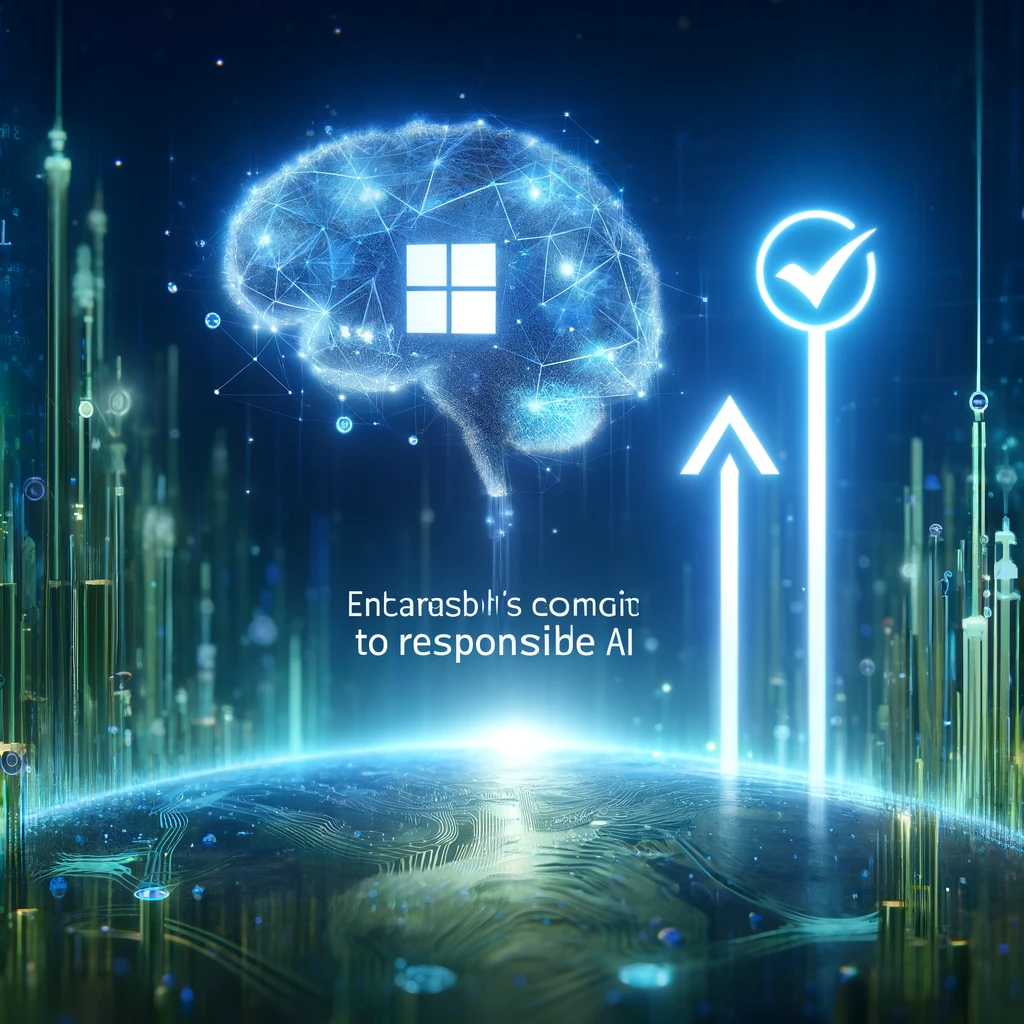Microsoft is among the AI developers championing ethical technology standards. It has thus released its responsible AI standard version 3. Driving this news item illustrates Facebook’s indomitable spirit in steering AI governance toward the benefit side while impeding possible harm. Theo Watson, Microsoft South Africa’s principal corporate counsel, and attorney, explained that the development process of AI, with its subsequent use, is comparable to the ethical questions due to the nature of nuclear in development.
Microsoft’s road map of ethical AI is in general well known
Ethics in AI systems does not exclusively concern its executives to developers, but also it involves customers, academia, industry players, and government entities, thus forming an ecosystem following fundamental ethical values. The Office for Responsible AI, a key aspect in this framework, makes the research, policy-making, and engineering concerned with ethical considerations and conducts regular assessments along the lifecycle of products and services that involve AI.
Efforts to follow ethical guidelines for Microsoft at their responsible AI include fairness, reliability and safety, privacy and security, diversity and accessibility, transparency and accountability. The principles related to these issues not only cover both inherent challenges such as accessibility and bias but also stress the importance of [a] clearly [as the] oversight mechanism and implementation mechanism. Through emphasizing transparency and accountability, Microsoft thereby meets the major principle of CEO Satya Nadella according to whom trust is the key to the broad usage of any technological improvements.
Operationalizing ethical AI
Now, the principles of AI floated by Microsoft are translated into the operational rules that lead to appropriate and safe use of their technologies. In addition to defining project goals, teams follow the ethical benchmarks which include deferred metering for regime trajectory and data reviews to verify the impartiality or inclusiveness. This outlines that companies would now be working under this model where ethics would be evaluated throughout the pre-design part and then further so till the product reaches the market.
The advancement of AI technology and its multifaceted ethical implications infer that Microsoft being an AI and technology powerhouse has to be constantly updating its ethical AI principles and standards. Tailor-made evaluation and adaptation are essential elements for the company to not only face changing conditions but also learn on the fly and incorporate stakeholder input.
Promoting AI accessibility and innovation
Microsoft has made recognition that AI accessibility is an area that requires serious attention, therefore they have set pretty high goals on how their AI technology can be made more available, which contributes to both the growth of innovation and the creation of new competitive drives. The company′s AI customer commitments and AI assurance program have been tailored accordingly to meet the particular requirements of the highly regulated sectors by specifically addressing the sharing of expertise and resources.
Collaboration with semiconductor makers, data centers, and various partners, focusing on AI benefits dissemination is set as a process outcome to spread the utility of AI across the globe, simply as an AI manipulation influence championed by Microsoft throughout the whole planet.
In the Bletchley Declaration on AI safety, the 30 countries brought forward a declaration, that provided a consensus from the international community that responsible strategies and AI deployment should be the force behind AI development and deployment strategies. Microsoft, in pursuing its part of this global discussion, promotes a humanistic approach to making AI accountable and ensuring that all the benefits it provides to mankind are utilized correctly.
Safeguarding the future with AI guardrails
Microsoft has also employed specific safety measures such as the use of AI systems with built-in safety brakes for high-risk applications. Stakeholder interactions with the surrounding provision of the protocols across the various sectors remain important in articulating the human oversight element. Transparency in these processes is vital since we will be open about our applied AI projects and aim to establish partnerships for the implementation of AI-based joint solutions that can help to overcome social and developmental challenges.
The collaboration with the UN Development Program and the African Union is proof of Microsoft’s effort to develop truly inclusive AI policies, which will be advantageous for the wide different communities across the globe. These initiatives create AI-based growth and solve the major issues in an open world, which embraces governments to social development.
Possibly, the updated Microsoft ethical AI principles intend to show a mature attitude towards a variety of ethical aspects of AI technology. The firm is not only advocating for the principle-based approach to develop a fair and transparent AI industry, but it is also calling on all stakeholders to build an industry that is characterized by ethics in the AI age hence trust and accountability are very crucial. In combining efforts and regular evaluations, Microsoft targets to achieve a point where AI technologies realize innovation while also sharing social standards that are beneficial to society as a whole.
Original Story From https://www.engineeringnews.co.za/article/microsoft-taking-principles-based-collaborative-approach-to-responsible-ai-2024-04-04





